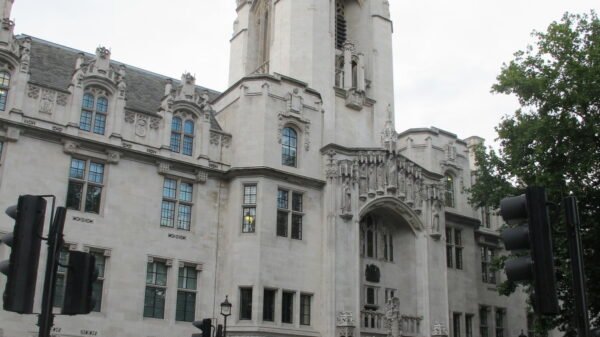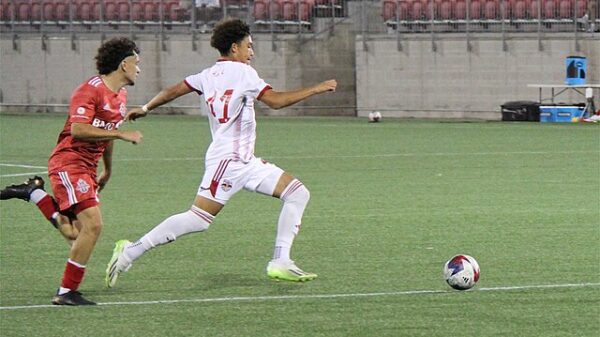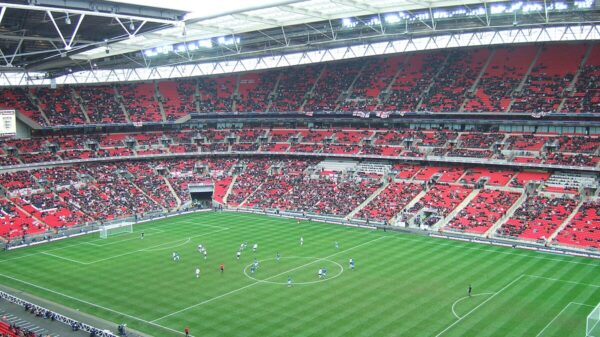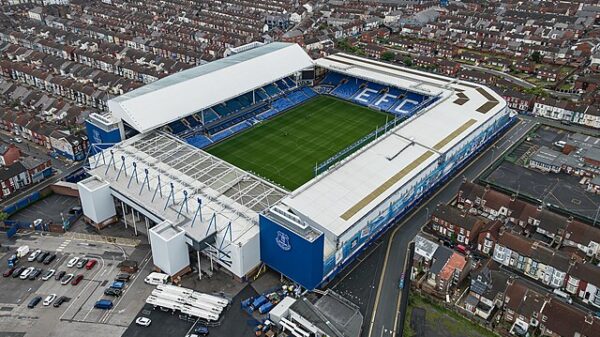Staff Writer James Toolan discusses the recent takeover of Everton FC by the Freidkin Group and the increasing presence of investment by US companies in the Premier League.
Over 21 months have passed since Farhad Moshiri announced his intention to sell his 94% stake in Everton Football Club in January 2023. 777 Partners, a Florida-based private equity firm dominated the Everton rumour mill over the preceding year with agitating intermittence. Both parties reached an agreement in early September that year, whilst worries around their respective financial health compounded throughout the season. During this, fans’ buoyancy around the team’s marked improvement under Sean Dyche was stymied by points deductions and appeals processes.
777 Partners missed a deadline and later extension in May 2024 set by Moshiri to complete the deal. As of this October this year, the group has been evicted from their Miami offices and filed for bankruptcy.
The Freidkin Group, a California-based consortium that owns A.S Roma, was granted exclusivity in talks in June 2024. John Textor, a Missouri-born sports-streaming mogul, then gained this same privilege two months later. Textor would have had to sell his 45% stake in Crystal Palace to complete any deal in compliance with regulators. That deal fell through and Dan Freidkin agreed terms with Moshiri this September. The Premier League are yet to give their approval, the timeline given for completion was 8-12 weeks.
Both Freidkin and 777 provided Everton with separate £200m loans, although the latter is now repayable to its administrators. Everton’s curious financial predicament explains in part the rigamarole of the saga. The sanctions against oligarchs following the war in Ukraine had arguably hit Everton worse than Chelsea. Instead of a hasty sale, the toffees simply lost the financial backing of Alisher Usmanov. Farhad Moshiri’s progenitor and Home Office-named threat to UK society even before Putin’s tanks massed on the Belarus-Ukraine border.
I’ll Believe it When the Ink is Dry
Unsurprisingly, the board of executives who have presided over such a financially hamstrung, fruitless project would open a few broom closets while searching for the exit door. Everton fans have learnt to distrust optimism, though they may appear to be “unflushable”, most quietly harbour the gnawing fear of the first game in the (admittedly fruit-like) new stadium against a Championship side.
PSR (profit and sustainability rules) will continue to slap any club that didn’t have a morally dubious “philanthropist” backing them in the early 2010s back to the relegation-flirting quagmire where they belong. The 2014-introduced rules block clubs from investing in amounts higher than their revenue.
The 2016 Moshiri takeover didn’t deliver. Will there be a glorious Brighton-esque upward mobility if we see Mr Freidkin occupying Farhad’s cold seat?
We can look to the efforts of his compatriots, a mixed bag, though the larger multipacks usually are. 45% of all Premier League clubs are now the property of their American cousins, a stake only 5.9% lower than the initial equity purchased by Moshiri in Everton. The story is the same in the Championship. If the Everton deal goes through and Vincent Kompany is proven wrong by Burnley, 2025 will see the land of the free holding a healthy controlling interest in England’s most sacred of cultural exports. How have they done so far?
For every Aston Villa, there’s a Leeds United, for every John Henry there are two skulking Glazers. Closet yearning for closed leagues notwithstanding, it’s difficult to identify a trend of either pious or sinful. Todd Boehly grabbed the reins of Chelsea with a plan to treat players like teenage NFTs. Four head coaches, reems of 8-year contracts and a billion quid later, it looks like Cole Palmer could still make it a pyrrhic victory.
What’s There to Worry About?
The main worry often touted is that football becomes “Americanised”. The touters point to the Super League fiasco as evidence of these intentions, even though Americans didn’t own the majority of those teams. After two years of silence, it seems now that the fear of god was put into their heretical New York overlords by the Newton Heath ruffians, other teams likewise. Private equity jerks instinctively hunt for new ways to squeeze out revenue, this will never be wholly abated, but the more immediate threat of “Americanisation” comes from within Europe.
UEFA has in obeisance, remade their golden baby in the image of the Super League Proposal. They further threatened to ban British teams from the Champions League’s if England appoints an independent football regulator as planned. This villain actually has leverage.
The catalyst for the influx of stateside investment and UEFA’s existential crisis is the same. The unstoppable financial dominance of the Premier League. “European football is broken”, cries Real Madrid chairman Florentino Pérez, while Texan-Bill Foley’s Bournemouth are outspending Dortmund. The reason why England can keep spending is because revenue is outpacing it, unlike other leagues.
This makes it a healthy growing industry, not a bubble. Poor management, sporting or otherwise is responsible for low profitability. PSR could take a more equitable stance on its regulations. They could permit clubs to have net transfer spending as an equal split of 60% of the league’s total broadcast revenues from the previous year. This is income every team is guaranteed and only deviates by a factor of 1.56 from bottom to top. That would have given every team £180m to spend regardless of their income in the 24/25 season.
This would still allow English spending to outpace the other top-five leagues combined. It would further enable lower teams to attract investment and do much to protect the league from a drop in revenue as the cap is always pegged to previous earnings. This also does not account for matchday or commercial income, which could have pushed the majority of teams last year into gross profit. It also would upset the big six status quo, but not in a way that severely damages their European competitiveness. £180m a year net is still enough to buy Ballon d’Or nominees.
The prize for sporting success should be profits, not profits and guaranteed privileged access to the player market. Our rigged regulatory playing field only permits the teams who don’t need to spend, to spend. Sports are not like other industries, winning always means others lose. The premier league is successful because it has the most equitable revenue sharing of football league to mitigate most damage. The current regulations appear blind to that fact.
Let Them Cook?
The threats to the premier league are more likely to come from our hands than across the pond. Aspects of the American sports system could even benefit England, namely the profit sharing and motive to partially handicap previous winners and prevent dynastic monopolies. Fears of culturally insensitive epithets and play-offs are still the property of Chicken Little (for the foreseeable future at least). The heavy investment into lower leagues also signals Americans are finally coming around to the fact that promotion/relegation is non-negotiable.
We share the same distaste for bilingualism and penchant for sports binge-drinking. People pack out bars in Chicago at 7am for an early kick-off. Yoga mums walk their dogs in Santa Monica wearing Wrexham jerseys. As long as this continues, the Premier League will be an attractive investment to America’s richest. Football will swell under foreign investment as it always has (they could even price out the nation-states). Dan Freidkin will have to employ some financial gymnasts if he wants to get Everton back to health, but his nationality does not portend anything. More investment in the home of football will continue England’s dominant position. More strangling PSR will threaten that long before the USA does.


















